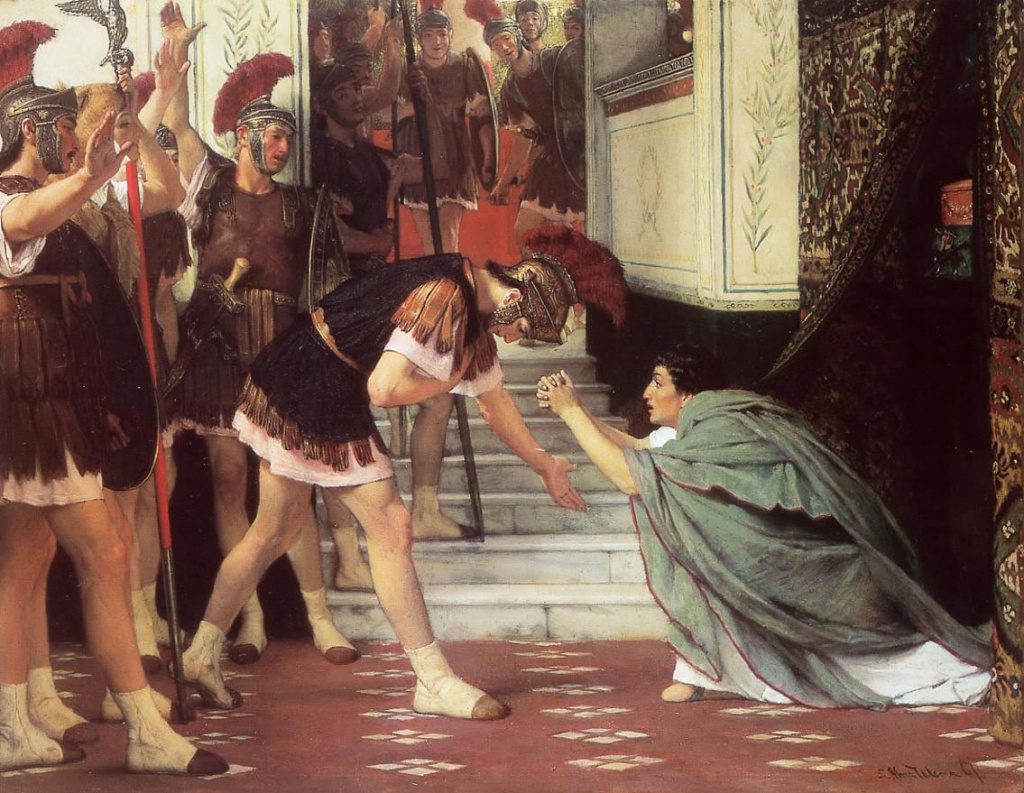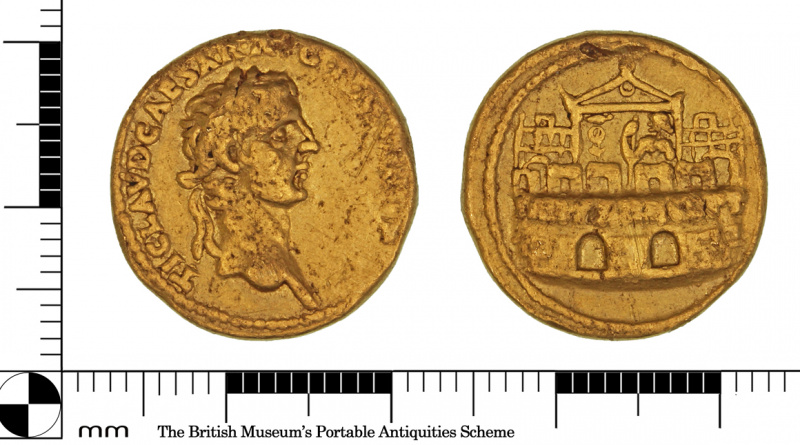Gold aureus of Claudius
An aureus of Claudius issued in AD 41 -42, just after he became emperor. On the reverse is the praetorian camp on whose battlements is inscribed IMPER RECEPT for Imperatore Recepto commemorating the “reception of the emperor”. Above and behind the battlements stands a soldier on guard looking left and behind him is a behind him is a pediment in which is a crescent.
The PAS record states that only one other specimen has been recorded from Britain (found in Staffordshire) and has designated this as a Find of Note.
Praetorian Guard
The Praetorian Guard originated during Republican times as a small troop of specially selected guards for Roman generals. In 27 BC, after the transition to an empire, they became the bodyguards of the emperor. They also acted as secret police and had significant influence; could even overthrow an emperor and proclaim his successor. During the reign of Tiberius the prefect of the Praetorian Guard, Lucius Aelius Sejanus, was among the first to exploit his position for his own aims. In AD 23 he built a barracks for the guards, Castro Praetoria, just outside the city of Rome.
Claudius becomes emperor
Being physically disabled and suffering a severe speech impediment, Claudius was a longshot to become emperor. His elevation came following the assassination of his nephew, Caligula, by the praetorian guard.

Proclaiming Claudius Emperor by Lawrence Alma-Tadema 1867
According to one version of the story of Claudius’ accession, the praetorians found Claudius hiding behind a curtain when they stormed the palace in the aftermath of their assassination of Caligula.
The Senate had proclaimed the restoration of a Republic but the praetorians needed an emperor to justify their existence. Therefore, they proclaimed Claudius emperor and took him to their camp for protection.
IMPER RECEPT gold aureus
To ensure their support, Claudius pronounced he would pay each praetorian a bonus of 15,000 sestertii (150 aurei). Claudius recognized the support of the Praetorian Guard with two issues of coinage, this type with the legend IMPER(atore) RECEPT(o) and a soldier on the battlements of Castro Praetoria, and a second type showing him greeting a soldier and with the legend PRAETOR(ianus) RECEPT(us) The Praetorians accompanied Emperor Claudius to Britain in 43 AD.

